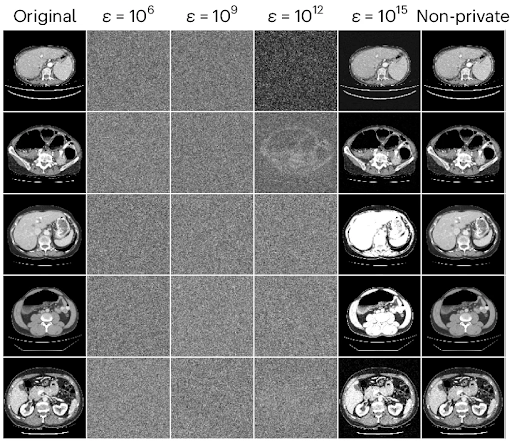In healthcare, particularly in oncology, practices must deliver quality care while managing their public image. With artificial intelligence (AI) and advanced technology, cancer treatment facilities can improve their reputation and streamline operations. Medical administrators, owners, and IT professionals in the U.S. are seeking ways to differentiate their services. Understanding AI’s role in front-office phone automation and communication is becoming increasingly important.
The Role of AI in Oncology
Cancer care involves detailed patient interactions and often requires considerable resources for scheduling, follow-ups, and inquiries. Administrative tasks can take valuable time away from healthcare professionals who could otherwise focus on patient care. AI technology is beginning to change these processes by automating routine inquiries and improving communication efficiency.
Recent trends show that about 69% of healthcare executives believe AI will significantly impact their operations in the next five years. For cancer practices, strong communication is essential for patient satisfaction and retention. AI can help smooth out front-office operations, making it easier for patients to access needed information while allowing staff to concentrate on more critical patient-related responsibilities.
Marketing the Advantages of AI Solutions
As healthcare evolves, the marketing strategies of cancer practices should reflect the advantages of AI solutions. Highlighting the efficiency and reliability of automated systems can appeal to potential patients and their families, increasing the likelihood that they will choose a practice that integrates innovation.
- Cost-Effectiveness: AI solutions can significantly lower administrative costs. By automating tasks such as appointment scheduling and reminders, practices can reduce overhead. This is especially crucial for cancer facilities, where high overhead can impact resources better spent on patient care.
- Improved Patient Experience: An effective AI system can lead to shorter wait times and a more seamless patient journey. When patients can easily contact the front office through automated services, they feel heard. This reduction in stress can lead to better patient outcomes.
- Enhanced Data Management: AI tools can assist practices in managing patient data more efficiently. With automated sorting of inquiries, oncologists can access important information quickly. Analyzing engagement patterns also helps practices tailor offerings based on patient needs, improving service overall.
- Building Trust: Reliability is vital in oncology. By promoting the use of AI technology for consistent service, cancer practices can build trust with their patients. Knowing that inquiries and scheduling will be handled competently creates security during difficult health journeys.
AI and Workflow Automation in Cancer Care
Streamlining Operations
One major benefit of AI in cancer practices is its ability to automate routine workflows. Here are some ways AI technology can reshape front-office processes:
- Automated Appointment Scheduling: AI systems can efficiently manage patient appointments, reducing staff workload. Patients can book, change, or cancel appointments using voice commands or online interfaces, often without needing human help. This system can function 24/7, offering flexibility to patients with demanding schedules.
- Intelligent Call Management: Automated answering services can route calls based on patient needs. For instance, calls from newly diagnosed patients can be prioritized and sent to the right team. This helps those first-time visitors feel less confused and anxious.
- Follow-Up Automation: After visits, AI can assist in following up with patients through automated messages about their health status or future appointments. This keeps patients connected and reassured about their ongoing care, which is important in cancer treatment.
- Data Analytics: AI can analyze data from patient interactions, allowing practices to identify trends in inquiries and appointment behaviors. This information can help develop new services and adjust workflows to meet patient needs more effectively.
- Integration with Electronic Health Records (EHRs): AI can blend smoothly with current EHR systems to ensure accurate patient information sharing. This reduces errors during manual data entry and enhances patient experiences.
Training Staff for AI Implementation
To integrate AI solutions successfully, cancer practices need to focus on training staff. Practitioners, administrators, and IT personnel must have the right knowledge to use these technologies effectively.
- Onboarding Sessions: Conducting sessions for new AI tools ensures team members know how to use the systems. Continuous education can improve their skills and keep them updated on technological advancements.
- Feedback Mechanisms: Setting up channels for staff to report challenges with AI systems is important. Addressing these issues can lead to improved workflows and a better experience for everyone.
- Patient Education: Educating patients about how AI systems work fosters transparency and trust. This can help allay any concerns they may have about automation and encourage more engagement with the technology.
Case Studies: Successful Integration of AI in Cancer Practices
Looking at real-world examples of AI integration can offer useful lessons for cancer practices:
- Northwestern Medicine: This cancer center used AI-driven chatbots on their website to respond to common patient inquiries about treatments and appointments. As a result, patient engagement went up, and the administrative workload decreased, allowing staff to focus more on patient care.
- MD Anderson Cancer Center: This institution used AI analytics to manage patient care pathways. By tracking patient interactions, they could identify which patients needed additional support, improving care and satisfaction rates.
- Cleveland Clinic: Cleveland Clinic implemented AI for telehealth appointments, improving access to specialists. This not only enhanced care availability but also positively influenced patient experience ratings.
Marketing Strategies for Cancer Practices Leveraging AI
Creating marketing strategies that highlight AI advancements can significantly improve cancer practices’ reputations. Here are effective strategies:
- Online Presence: Building a strong digital presence through a user-friendly website and active social media accounts can help practices showcase their AI features. Regular updates about technology integration can keep potential patients engaged.
- Educational Seminars: Hosting webinars or workshops to inform patients about AI innovations can position practices as leaders in the field. These can discuss how AI enhances patient outcomes and addresses common concerns.
- Patient Testimonials: Gathering feedback from patients who have benefited from AI-enhanced services can serve as a powerful marketing tool. Sharing real-life stories can instill confidence in potential patients.
- Community Engagement: Participating in community events and sharing information about AI in cancer care can generate local interest. Engaging with the public increases awareness and builds trust.
- Collaborations with Influencers: Partnering with healthcare influencers or community leaders can help amplify a practice’s message about AI. These advocates can lend credibility and effectively communicate benefits to a broader audience.
Final Thoughts
Navigating cancer care requires both innovation and flexibility. Cancer practices that adopt AI in their operations can streamline workflows and enhance their reputations. By emphasizing effective communication and patient-centered approaches, oncology practices can position themselves as leaders in providing quality healthcare solutions. Embracing technology, particularly AI, opens new avenues for improved patient interactions, operational efficiency, and marketing potential, ultimately leading to better patient outcomes.
The post Enhancing Reputation in Cancer Practices: Marketing AI Innovation first appeared on Simbo AI – Blogs.











